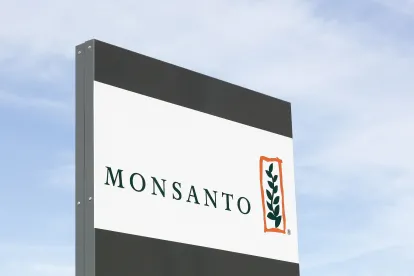In June 2022, the U.S. Supreme Court made a decision that could result in millions of dollars in judgments in the future. Specifically, the justices left in place the $25 million in damages awarded by a California jury to Edwin Hardeman, a California resident.
Edwin Hardeman regularly used the glyphosate-based weedkiller Roundup for 26 years—unsurprising, as it was the most-used herbicide in the U.S. by 2007. In 2015, physicians diagnosed Hardeman with non-Hodgkin’s lymphoma. The following year, Hardeman sued Monsanto, the manufacturer of Roundup, alleging that Roundup exposure led to his cancer.
The jury found that Mr. Hardeman proved:
-
Exposure to Roundup led to non-Hodgkin's lymphoma
-
Monsanto was "negligent in not using reasonable care to warn about Roundup's risk
-
Roundup was defectively designed
As a result, the jury held that Hardeman demonstrated he was entitled to punitive damages and awarded him a verdict of $25 million for punitive and compensatory damages.
Many lawsuits claim plaintiffs were exposed to Monsanto-manufactured products with the active ingredient glyphosate and allege injuries including multiple myeloma, non-Hodgkin lymphoma (NHL), and other blood cancers. Plaintiffs stated that Monsanto should've known of the associated risks and failed to warn product users. In total, 138,000 claims have been brought forward to Bayer—as of 2018, Bayer owned AG Monsanto Company as a subsidiary.
In most cases, Monsanto settled litigation without admission of liability—107,000 cases have been settled. And in some cases, juries issued verdicts in Monsanto's favor. However, juries in three cases provided damages in amounts of multimillions of dollars. These litigants included Hardeman, along with Alva and Alberta Pilliod and Dewayne Johnson (who received a $20.5 million-dollar judgment, reduced from the original $289 million on appeal). Significant jury awards can influence future legal proceedings and settlement amounts.
Monsanto pursued appeals forcefully. In May 2021, Monsanto appealed to the U.S. Court of Appeals for the 9th Circuit, which ruled against them. Bayer then petitioned the U.S. Supreme Court for review in August 2021. In May 2021, Bayer proposed measures to deal with future glyphosate litigation based on two potential Supreme Court rulings on Hardeman.
If the Supreme court ruled in favor of Bayer, all future potential litigation would end. If the court refused to hear the case, Bayer would trigger a predetermined compensation claims program for those who previously used Roundup and developed NHL over the next 15 years. However, the company still stated that regulators and evidence don't show a cause-and-effect relationship between Roundup and NHL.
A half-dozen organizations lined up to file Supreme Court amicus curiae for the petitioner, Monsanto—including Atlantic Legal Foundation and the U.S. Chamber of Commerce. Despite being outweighed in court, Hardeman prevailed when the U.S. Supreme Court left in place the lower court's decision.
The arc of justice is rarely speedy—six years have elapsed since Mr. Hardeman first filed the case. As demonstrated repeated appeals can slow any delivery of justice and judgments, all the way to the Supreme Court.
Product Liability: Future Trends
The case's outcome could influence other multidistrict legislation cases focused on product liability claims. Personal injury/product liability filings surged 150 percent in 2021, or 138,436 cases in the U.S. federal judicial system.
Multidistrict Litigation (MDL) consolidates individual U.S. federal civil litigation, sharing various factual questions regarding a single product for common discovery and pretrial steps. Many MDLs involve product liability and can even involve several thousand lawsuits.
A bellwether case is a way to test the strength of arguments in a representative case and is common in MDL. For example, a bellwether case might investigate liability issues found in the specific case, and all the cases presented. The bellwether trial's outcome, jury rulings, and monetary judgments shape approaches for future arguments and, potentially, trial outcomes.
In 2022 and 2023, such bellwether trials will soon begin in California and Florida regarding stomach acid-reducing medication Zantac (generic name ranitidine), produced by name-brand and generic manufacturers. In 2019, manufacturer Sanofi initiated a voluntary recall of some Zantac products after the FDA issued a public statement about Zantac. According to the FDA, ranitidine-containing over-the-counter Zantac could also contain nitrosamines, a byproduct of the manufacturing process and classified as a probable human carcinogen.
In April 2020, the FDA requested all name-brand and generic manufacturers to withdraw Zantac products from the market. The FDA found that nitrosamines can increase with heat and time to "unacceptable levels" and "expose consumers to unacceptable health risks." The FDA noted that the risk of cancer might increase if people are exposed to impurities in ranitidine at above acceptable levels and over long periods. However, the FDA said it might not be unsafe at everyday levels.
Other nitrosamine-related recalls from specific manufacturers followed, including for some drugs used to treat diabetes, heartburn, acid reflux, and blood pressure, and included nizatidine, metformin and angiotensin II receptor blockers (ARBs).
Current class-action lawsuits and individual cases state that Zantac manufacturers’ labels failed to warn the public about cancer risks and that the medication's design is defective because ranitidine is an unstable molecule. Lawsuits allege that various cancers, including bladder and liver cancer, may be linked to nitrosamines, or NDMA. More than 2,100 Zantac lawsuits have been filed in federal court, with tens of thousands of additional cases waiting in the procedural wings. In 2020, MDL Zantac products litigation began, and in 2023, bellwether cases regarding Zantac are expected to proceed.
As another example, Gilead manufactures Truvada and five other products and has been named as a defendant in numerous state and federal product-liability lawsuits and a class-action lawsuit. More than 27,000 plaintiffs are currently involved, claiming that the pharma giant's medications caused bone, kidney or tooth injuries and that Gilead failed to provide proper warnings about the product.
Product liability cases take considerable effort, patience, and funding, whether an individual case, a class-action lawsuit, or a case part of an MDL.



 />i
/>i

